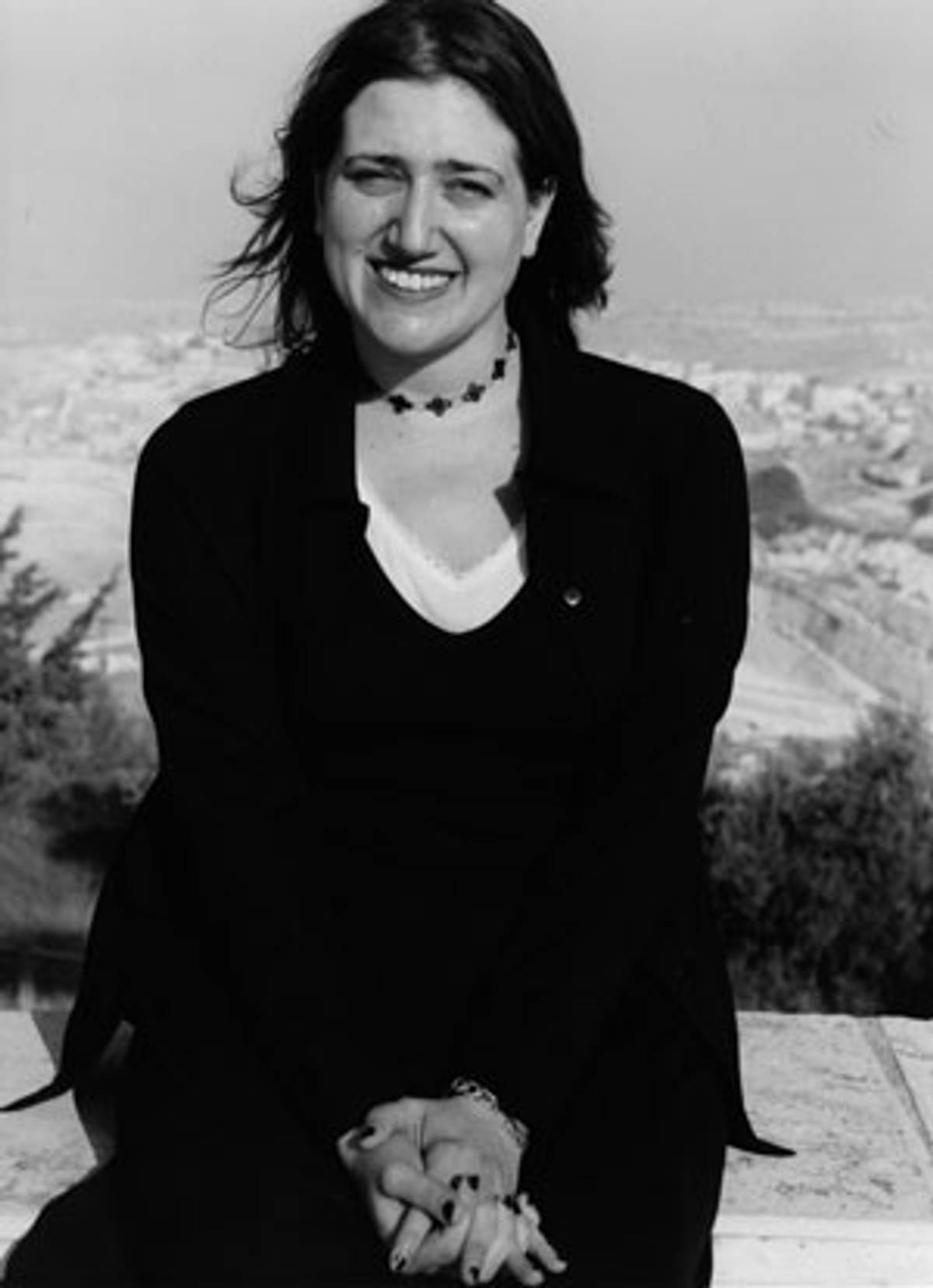Found in Translation: How a Writer Discovered the Bible Anew at the University of Iowa
‘The Grammar of God’ author Aviya Kushner thought she knew Hebrew scriptures well, but a course she took while pursuing an MFA changed everything




In August 2002, Aviya Kushner left Jerusalem, where she had been a correspondent for the Jerusalem Post, returned to her parents’ home in Monsey, New York, and then drove a thousand miles west to Iowa City to begin an MFA program in nonfiction writing. She left with just one name in her pocket: Marilynne Robinson. The essayist and novelist usually taught classes on 19th-century literature, and in her first year Kushner took one. But in Kushner’s second year, Robinson chose to devote both semesters to teaching the Bible. Kushner took the class, and it changed the course of both her literary and spiritual lives.
Kushner’s new book, The Grammar of God, is about what the Bible loses in translation, what those who read it in Hebrew can access but those reading in other languages cannot. The book began in Robinson’s class, which offered Kushner a novel glimpse into a text she thought she knew well. A native Hebrew speaker with an expressive face, Kushner would prompt her professor to stop and ask what it was that she found so surprising in the class discussions of the text. At first, Kushner thought that explaining the differences would be easy, but slowly it dawned on her that the gaps in understanding were not so easily bridged.

“The deeper I got into it,” she recently told Tablet by phone, “the more problems I saw, more challenges. Every line is a minefield.” Kushner was no stranger to arguing over the meaning of biblical passages. Dinner-table conversation with her mother, an expert in ancient Near Eastern texts, her mathematician father, and her four younger siblings often revolved around discussions of the Bible and Jewish texts, but, she said, “there is a difference between talking about it with your family and having it out in public. I had to be clear and as accurate as I could possibly make it. Whenever I thought I nailed a passage, I found a new point of view.”
Kushner came to realize that the experience of studying Bible in English with her classmates began with her needing to know what they brought to the text as they read. “I found that my classmates believed all sorts of things that I did not think were possible,” she said, but eventually “I understood where they were coming from, and I had a lot of empathy for them.”
Kushner ultimately concluded that this enlarged understanding—of both the text and those with whom she was studying it—cut to the very heart of what exegesis could help to unlock. “Sitting in the classroom in Iowa, thinking about the name of God,” she writes, “I am not rebelling against tradition but following a long history that believes that to truly understand anything you must duke it out, on the inside, with both yourself and with God.”
Kushner said that her book’s aim is to give the non-Hebrew speaker a “nitty gritty” sense of what it’s like to read the Bible in its original form. “I think that what I was trying to do,” she said, “was to quantify a feeling I think a lot of people who know the Hebrew will feel. There is a real gap between the Hebrew and the English.” Kushner tries to fill that gap with stories of her family members, teachers, and classmates—as well as both research and inventive prose. The book displays a very human side to the reading experience, including a trip back to her grandfather’s birthplace in Germany and a visit to his current home in Israel.
***
As an undergraduate at Johns Hopkins, Kushner hadn’t taken Bible or Jewish studies courses; she studied art history and writing. She hadn’t taken any Bible classes during coursework for her first MFA, in poetry, at Boston University. She had written poems on the Book of Isaiah, but the turn she took at Iowa came as a surprise.
In crafting her book, Kushner said, the aim was to strike a balance between the exegetical and the communal—to make the text come alive in a way that includes those who don’t share the same background she does. In structuring the book, which is arranged around such topics as creation, love, laughter, man, God, song, and memory, Kushner wanted to convey just how various the Bible can be. “It is the story of people,” she said, “the story of the creation of the world, a book of laws, it is something many people sing out loud. At many points it is pure poetry. It can be funny and it can be wild, and I needed a structure that reflected all of that.”
How to properly capture the Bible in English has challenged translators since John Wycliffe, whose 14th-century translation worked from the Latin. “The translator of the Hebrew Bible faces a near-impossible task,” wrote Everett Fox, a Clark University professor known for his 1995 translation of the Torah, in an email to Tablet. “The ‘literary’ characteristics of the Bible must be preserved or echoed, even if it means stretching some of the boundaries of English, so as not to lose the text’s ability to say important things in a unique and memorable way. This must be done as much to counter previous ‘performances’—historical and recent translations—as to represent the Bible itself. It is the process of making-new, defamiliarizing the familiar, which ensures that the Bible will not become frozen as a cultural icon, but will remain a source of living encounter.”
It is just such an “encounter” that Kushner seeks to achieve in her book.
Distinguished translator and critic Robert Alter expressed similar sympathy for the task Kushner had taken on for herself. “Existent English versions have not paid sufficient attention to issues of style,” he wrote to me, because “many biblical words do not map semantically onto their approximate English equivalents” and “the structure of biblical Hebrew is so different from that of modern English.”
Kushner writes in a chapter titled “God” that her mother taught her that language isn’t simply a collection of words. “It is an opening into a way of thinking,” she writes, “a view of the world, a naming of its neighborhoods. But it is not easy to make a language come alive for someone who does not speak that language; it is a challenge to rename the seemingly familiar and name the unfamiliar. The effort often results in clumsiness and misunderstanding. Perhaps that is why translators are often reviled.”
One of the many pleasures of this new book is to see the process by which Kushner struggles to come to an understanding of the text in language that at once is poetic and does justice to its source. “What Jewish law wants is an ongoing conversation between man and God, and between man and man—but most of all, between man and himself,” she writes. “It’s not a command, exactly, but a conversation: an inner song, full of melody and refrain.”
The book’s key message is that studying the Bible is never about just one solitary reading. “I struggled with whether to put my family in the book,” Kushner said, “but really felt that Bible is not the story of an individual reader but of various readers coming to the text from various paths.”
***
Like this article? Sign up for our Daily Digest to get Tablet Magazine’s new content in your inbox each morning.
Beth Kissileff is the editor of the anthology Reading Genesis (Continuum, 2016) and the author of the novelQuestioning Return (Mandel Vilar Press, 2016). Visit her online at www.bethkissileff.com.